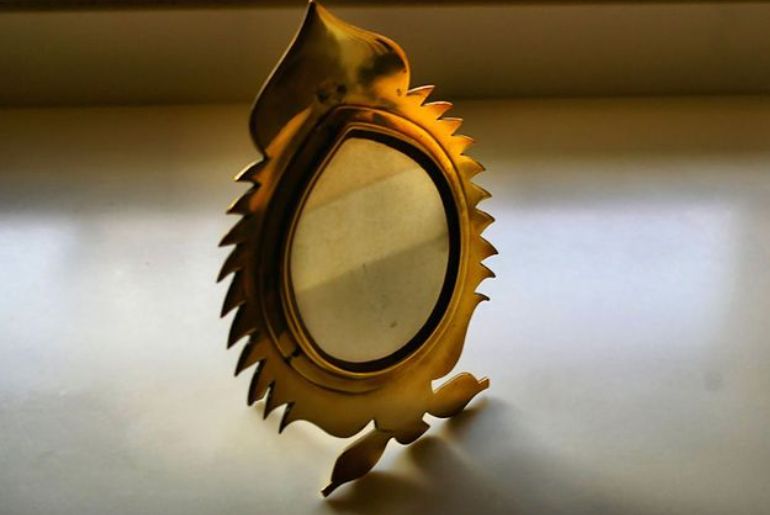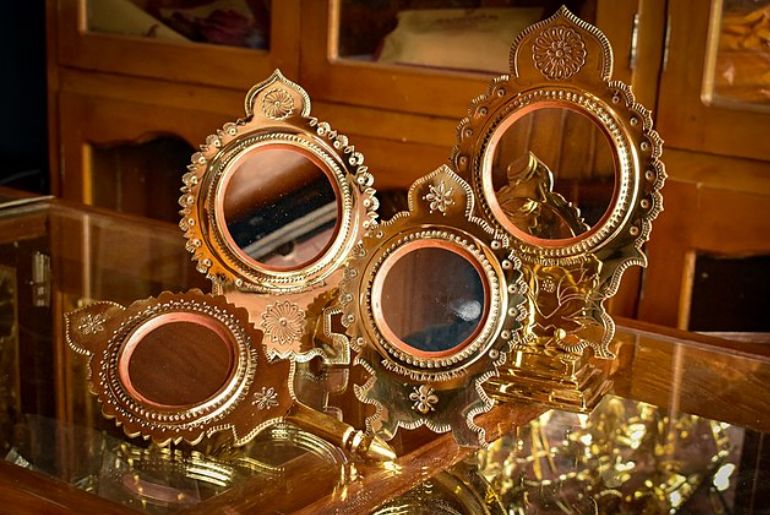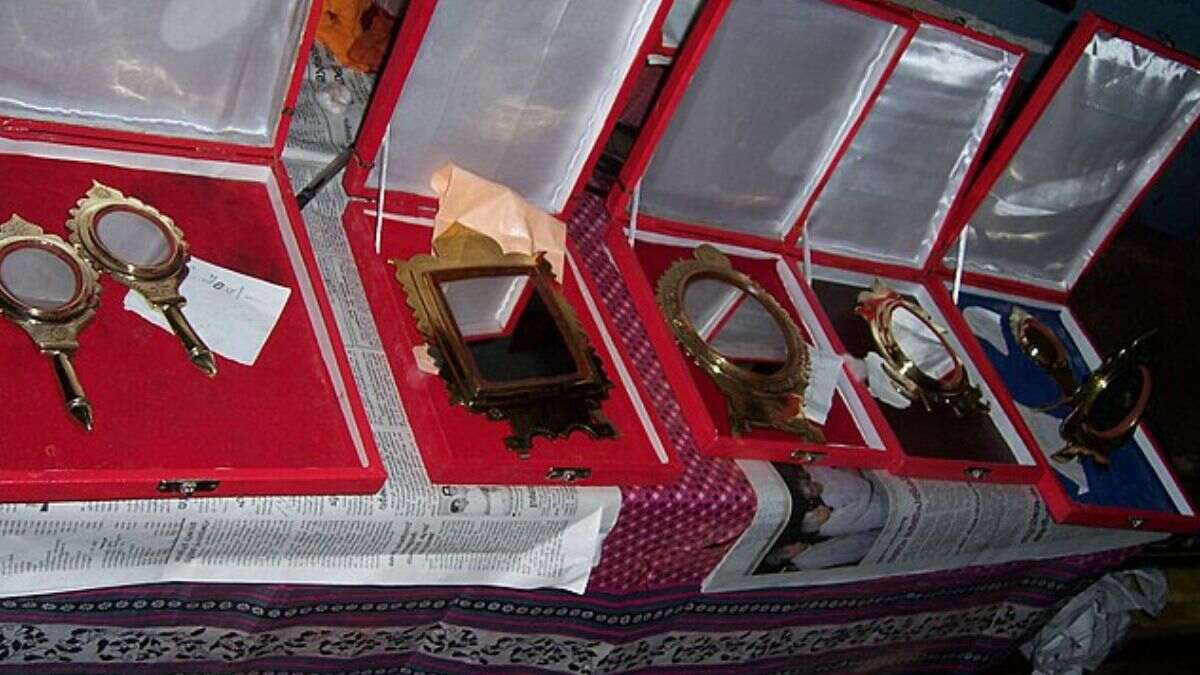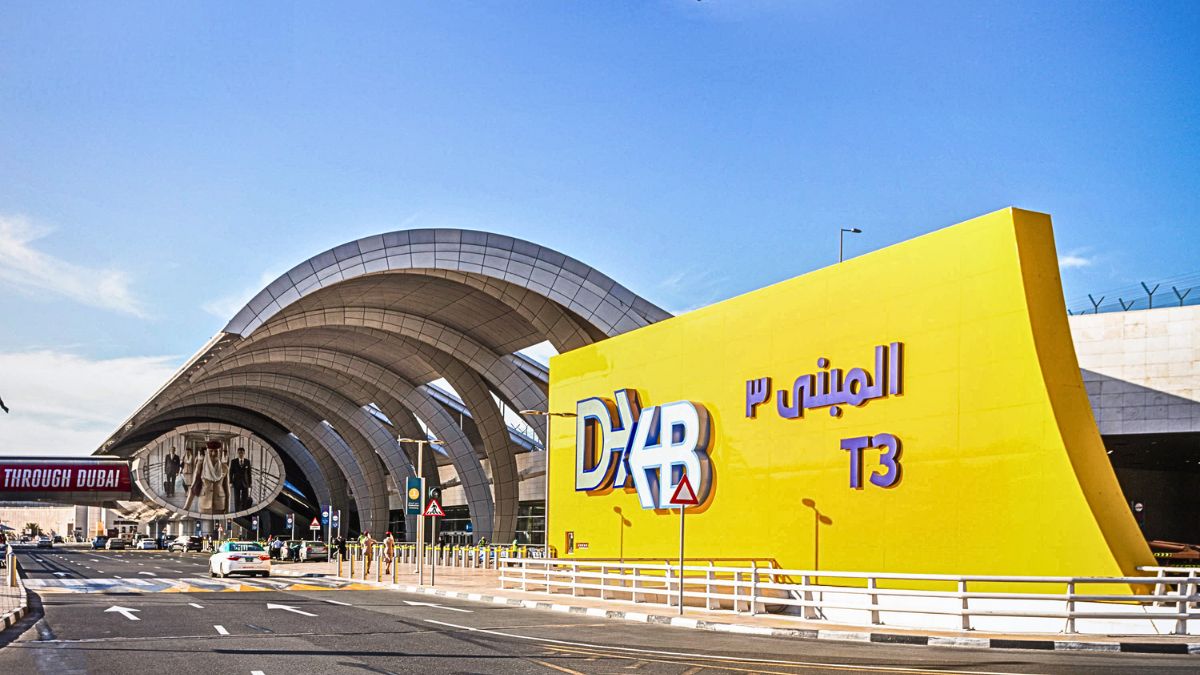Kerala is home to extraordinary travel experiences. From bustling touristy destinations to quaint and offbeat places, there are just so many splendid locations to explore. The best part is that all these places have a uniqueness and this distinctiveness attracts tourists to enjoy diverse offerings. One of Kerala’s lesser-known towns is Aranmula and it is famous all around for its unique metal mirrors. The differences between these mirrors and regular ones are drastic and this is one of the things that makes the temple town so special.
Aranmula’s Specialty Is Magical Metal Mirrors & A Lot About It Is Still A Secret

This quaint town is quite often visited by Vaishnav pilgrims. If you also wish to take a trip to Aranmula, plan a day soon and witness the glory and story behind the famous mirrors. It is around 100 km away from Thiruvananthapuram and is famous among visitors for many highlights. Pampa River is close to this place. Another attraction that lures tourists is the renowned boat race during Onam. Among all the other exciting facts about Aranmula, our favourite is the magical mirrors.
Have you seen a mirror without a glass? It seems quite unbelievable, right? But this town in God’s own country is known for its long-lost art form and craftsmanship of metal mirrors. Aranmula Kannadi is made of only metals and has a unique composition that is hardly known to others. The complex constitution of metals and the metallurgy process is surely commendable. It has been continuing to impress everyone for years and decades.
The most splendid part is that these metal mirrors of Aranmula received the recognition of a Geographical Indication tag. It was long back in the year 2005 when the town was recognised for these extraordinary skills that are still kept a secret from the world. It shines and reflects from the shiny metal surfaces. Many of us are aware of some metals of this unique metallurgy composition but still, most people do not know exactly what goes behind the making.
Also read: Right In The Middle Of A Vibrant Rubber Plantation, Stay At This Colonial Bungalow in Kerala
This Is What We Know About The Behind-The-Scenes Of Aranmula Kannadi

A whole lot of process goes behind making these perfect metal mirrors. An alloy of copper and tin is used in the secret composition. The metallurgy preparation to develop the metal mirrors has not been discovered by people yet. Reflective surfaces are used for that shiny outcome. Getting the desired results is a long process. The making begins with preparing the metal mixture followed by pouring in the mould and then finally polishing the surfaces for a long time. Mirrors are meant to be reflected and the steps to get the perfect reflective surface are surely difficult.
This special mirror is believed to be auspicious and it also represents good luck. You might have seen astamangalya (8 auspicious things used in auspicious religious celebrations) and this lucky mirror is one of them.
Have you been to the temple town before? If not, you need to plan a trip to this destination ASAP. Seeing the metal mirrors, knowing about that, and even buying a few as souvenirs seem like perfect reasons to travel to Aranmula.
Cover Image Courtesy: Wikimedia Commons
For more such snackable content, interesting discoveries and latest updates on food, travel and experiences in your city, download the Curly Tales App. Download HERE.
Good news! We are on WhatsApp! Subscribe to Curly Tales WhatsApp Channel to stay up-to-date with exclusive content and BTS. Join HERE.
First Published: November 21, 2023 4:24 PM



